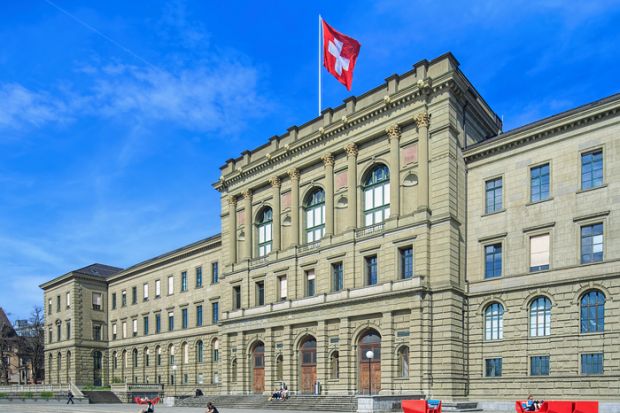One of the world's top-ranked universities has closed its Institute for Astronomy following allegations of bullying of PhD students by an academic.
ETH Zurich – Swiss Federal Institute of Technology Zurich confirmed that the institute had been shut and that the professor in question had had her doctoral students reassigned to other supervisors while it investigates claims that doctoral students were denied holiday and forced to attend meetings that ran past midnight.
The university’s executive board learned of the bullying accusations in February, according to an ETH spokeswoman, and “subsequently conducted interviews with all involved parties”.
“These were serious accusations relating to management misconduct. This type of behaviour is not tolerated at ETH Zurich, and the university responded immediately with corrective measures,” she said in a statement.
“The top priority was to protect doctoral students; this was done by assigning them to a new supervisor. The Institute for Astronomy was closed, and individual professors were integrated into the Institute for Particle Physics and Astrophysics,” the spokeswoman continued.
The professor accused of bullying no longer has any doctoral students, and can take on new ones only under the “close supervision” of the university, she said.
The professor and her husband, also an academic at the institute, have now been placed on leave, the spokeswoman said, although only the former is accused of bullying.
Peter Coles, professor of theoretical astrophysics at Cardiff University, criticised ETH’s response on his blog, asking: “What compensation or other redress is being offered to those who have been bullied in the Institute for Astronomy during this time?”
The action that ETH has taken is not an “adequate response to a situation so serious that it necessitated the closure of an entire institute”, he said.
Accusations of bullying at the institute spanning more than a decade were revealed by the Swiss newspaper NZZ am Sonntag in an investigation published on 21 October. The professor, who is not named, had expected doctoral students to show “superhuman commitment”, it reported, allowing them barely any holiday and setting late meetings that ran until past midnight.
She had also told female PhD students to spend less time on their make-up and more on their research, the paper reported. About a third of her doctoral students failed, well above the university average, it found.
In addition to having taken “immediate” measures that had “defused” the situation at the institute, the university will now also commission an “external expert” to look at what happened at the institute. It will focus “on the question of how better to ensure that reports of poor management conduct can be swiftly escalated to a higher level within the organisation, and in serious cases directly to the executive board”, according to a statement from the university.
As well as examining structures and processes at the institute, the inquiry could also lead to further disciplinary measures against the professor.
The university decided to initiate this external investigation in October, the spokeswoman said. She declined to confirm the names of the professors placed on leave.




